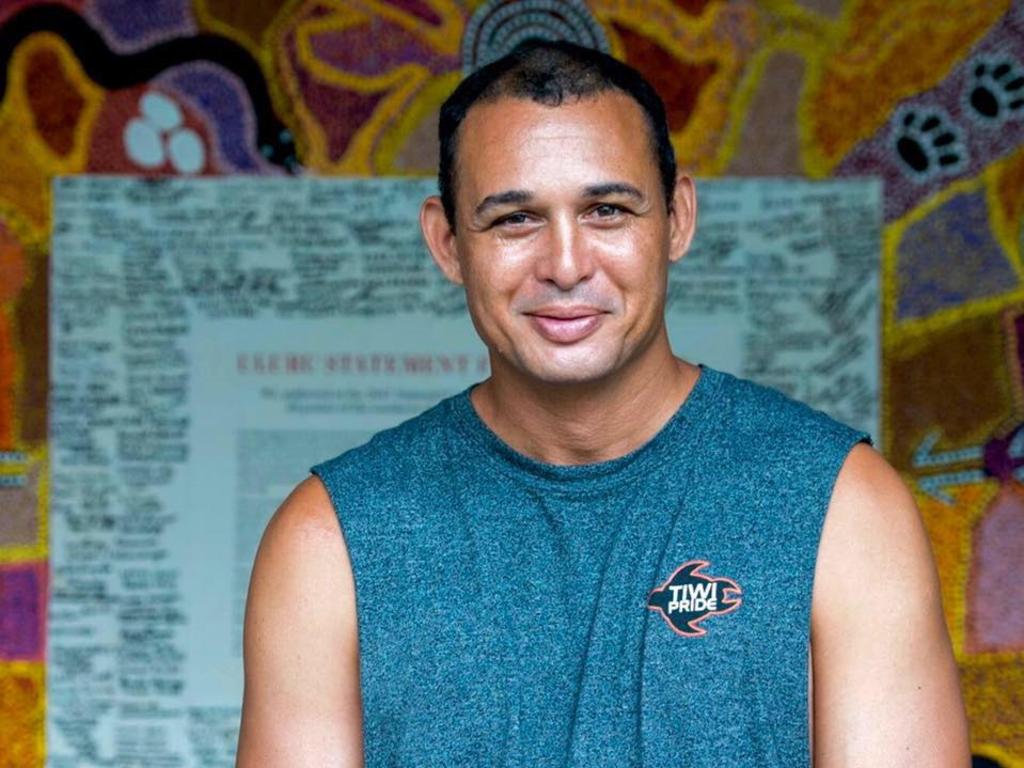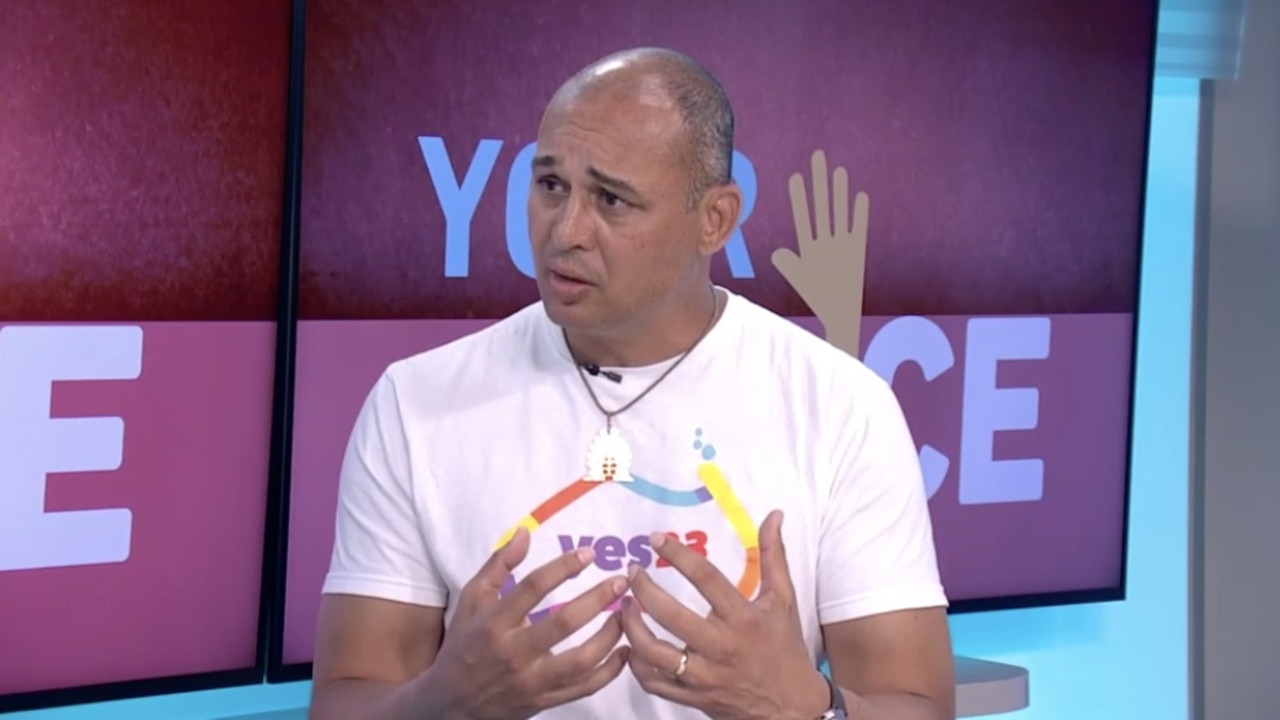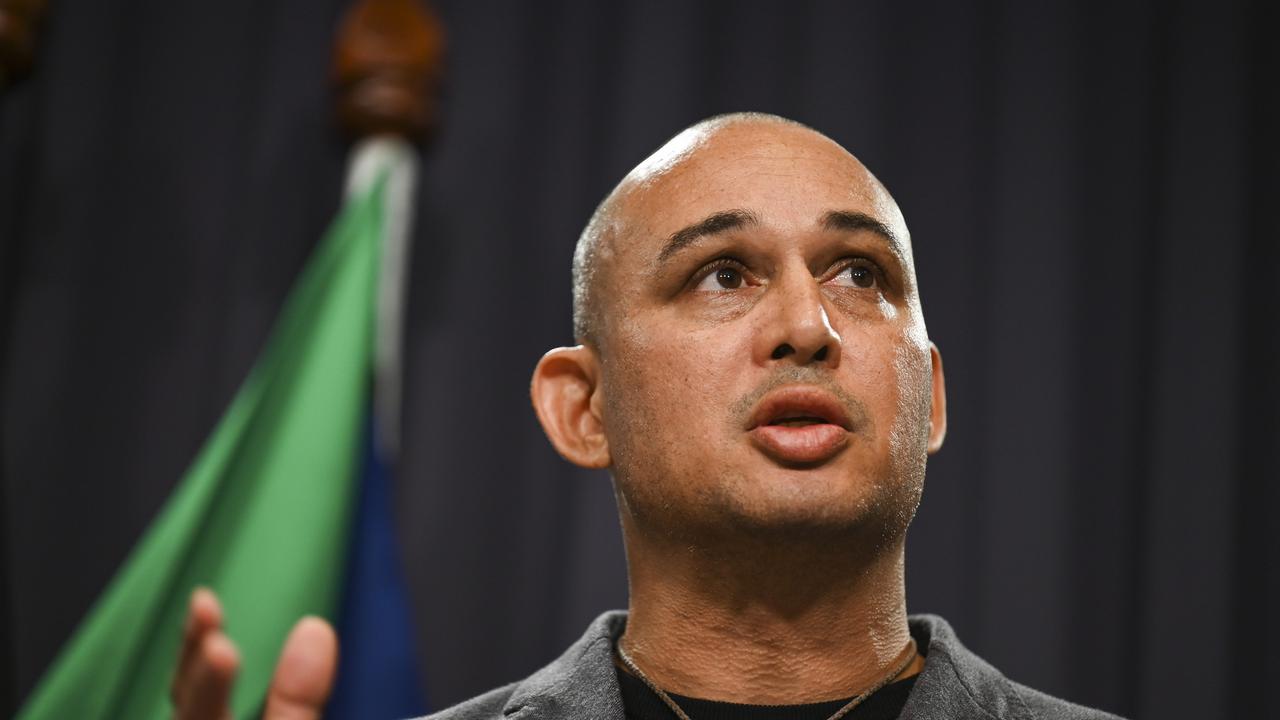Video Q&A with prominent Yes campaigner Thomas Mayo ahead of the Voice vote
As the historic Voice referendum nears, leading Yes campaigner Thomas Mayo answered questions live from news.com.au readers.
A leading figure of the Yes campaign has made a solemn pitch to undecided voters ahead of Saturday’s historic referendum on the proposed Indigenous Voice to Parliament.
Thomas Mayo, a long-time advocate and member of the original Uluru Dialogue, which wrote the Uluru Statement from the Heart, took part in a special news.com.au live video Q&A.
You can watch the Q&A video in full above.
Mr Mayo answered a range of questions from readers on everything from the design of the Voice to potential unintended consequences of a Yes victory.
“As an advocate for improving outcomes in Indigenous communities, I’ve seen that nothing else has worked,” Mr Mayo said of his support for the Voice.
“I’ve seen that without a Voice, we are incoherent and far less able to bring the solutions to Canberra. The Voice is a way for Indigenous people to simply be heard.”
A number of questions centred on the significance of changing the Constitution, including why the Voice needs to be enshrined within it.

A big part of it is the importance of “recognition” of First Nations people in the nation’s most important document.
“We have a history, a heritage and a culture that spans over 60,000 years. This is the longest continuous civilisation on the planet. That’s important for our country to acknowledge.
Should Australia vote Yes on Saturday, Mr Mayo said it will be a “unifying thing”
“It’s a great gift that the Uluru Statement from the Heart,” he said.
Many questions were about the notion of ‘paying the rent’ or forced reparations for Aboriginal and Torres Strait Islanders, as well as the idea that the Voice will spark moves to establish treaties.
“A treaty is an agreement between parties,” Mr Mayo said.
“They’re already being negotiated in some states and the Northern Territory. It’s well advanced in Victoria. With bipartisan support, Queensland has a pathway to Treaty. In Tasmania, a Liberal government has progressed that process.”
But he said the process will take 30 to 40 years to complete, experts have estimated, so “it’s a long way off.”

“The fearmongering about Treaty, the distraction the No campaign is trying to create around Treaty … what’s important for people to understand is it’ll ultimate be up to a parliament to agree to a Treaty outcome.
“There’s nothing to fear from Treaty.”
On other arguments presented by the No campaign, Mr Mayo said “misinformation” had muddied the waters and sparked confusion among voters.
“Let me cut through all the misinformation,” he said.
“There is no extra cost for saying Yes to the Voice. We’re going to save taxpayer dollars by getting vital outcomes for Indigenous children and for our communities in health and education.
“The Voice can only decide what advice it’s going to give. It cannot tax people, it cannot charge a fee to go to the beach, it cannot take your backyard or your farm.
“This is not a conspiracy. It’s just an advisory committee to guide a parliament, when all previous parliaments have not got it right by not listening to us.
“That’s all it is. There’s nothing to lose and everything to gain.”

News.com.au made repeated requests to the official No campaign, to individuals within it, and to other prominent Australians who oppose the Voice, inviting them to take part in the live Q&A.
They all declined.



